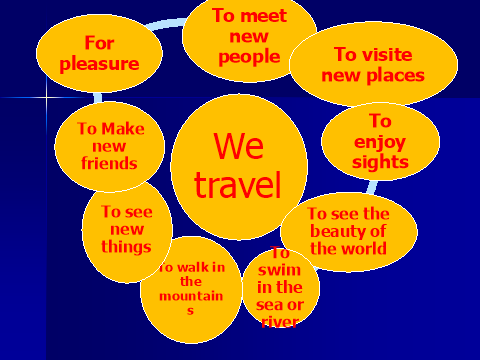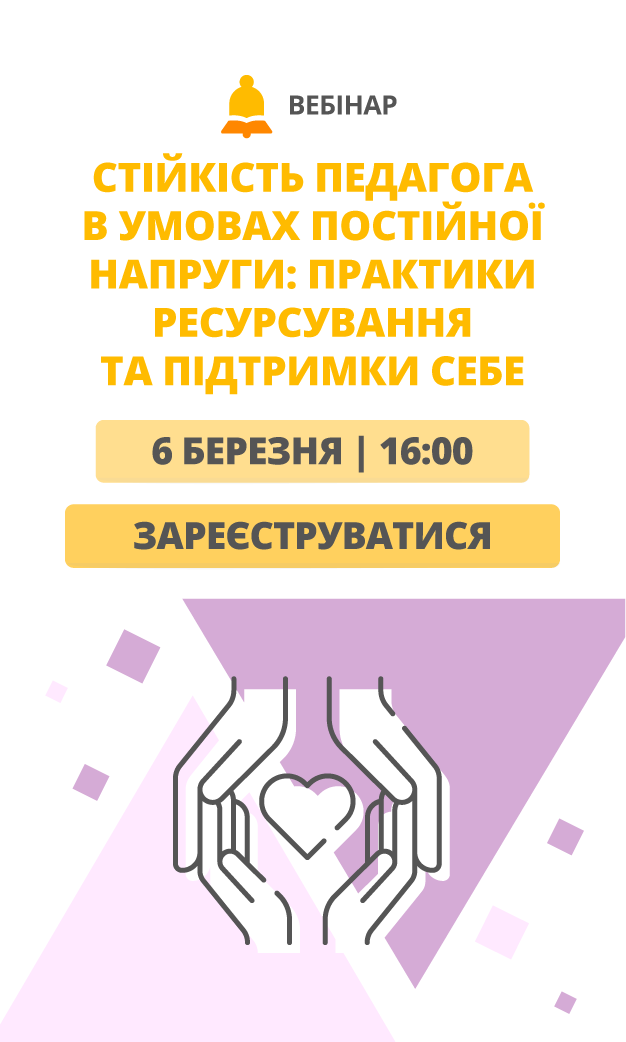Урок з англійської мови "Travelling"
Метою уроку є закріплення лексики та формування вміння застосовувати її на практиці, розвиток комунікативної компетентності учнів, розвиток пізнавальної творчої активністі. Інтерактивні методи дозволяють вчителю і учням організувати більш інтенсивний та захоплюючий процес співробітництва. Це підвищує активність, готовність відстоювати свою особисту точку зору та мотивацію учнів до оволодіння ними необхідними знаннями. Урок включає всі основнівиди мовленнєвої діяльності.
Тема: Travelling
Мета:
- відпрацювати вивчену лексику в новій мовленнєвій ситуації;
- закріплювати та удосконалювати мовніі лексико-граматичні навички;
-уміти висловлювати власні думки й припущення;
-розвивати культуру спілкування й мовленнєву реакцію учнів;
-розвивати пізнавальну творчу активність;
-розширювати світогляд учнів, думати, аналізувати, розмірковувати;
-виховувати культуру спілкування і потреби в практичному використанні мови;
- виховувати зацікавленість до розвитку туристичного бізнесу, професіям даного виду діяльності.
I.Greetings. Introduction
Teacher: Do you know the topic of our lesson? Guess, what we are going to talk about.
-People like to do it .
-They usually do it in summer.
-They take a lot of luggage with them.
-A lot of people do it all over the world.
Cl.:- Travelling-
Teacher: Good morning, dear children! Glad to see you. We’ve just studied the theme “Travelling” and this lesson is devoted to this theme. During our lesson we’ll review our vocabulary, tenses, listen to the tape, make and act our dialogues.
Almost all people are fond of travelling. It is very interesting to see new places, another towns and countries. People may travel either for pleasure or on business. There are various methods of travelling. People travel on business and for pleasure. So it is impossible to imagine our life without travelling. Our travelling begins.
Phonetic Drills
Teacher: During the travelling people like to read poems. Let's read a poem
We go, go, go
By train, by ship, by car
We always want to know what's near and what's far
Farewell, farewell everything is going well
Comfortable seats
Everybody meets
In the South, in the West
Pleasant trip and all the best.
2 Warm-up activities
Teacher: We know that lots of people are fond of travelling. Why do people like to travel?

II. The main part of the lesson
Teacher: To begin with, let’s remember the words. Rearrange the letters to make words.
- My mother travels by FAST train.
- We ARRIVE D at the bus stop yesterday.
- It was a nice TRIP.
- We spent our holiday at the SEASIDE last year.
Keys: 1. fast, 2. arrived, 3.trip, 4.seaside.
Teacher: Imagine that on winter holidays you are going to travel. Which means of transport are you going to travel by? I am going to travel…
- by car
- by train
- by plaine
- by ship
- on foot
- by bicycle
Teacher: Before travelling we must pack a suitcase. This is our suitcase. Imagine that is summer now. What are you going to take?
P. I am going to take a camera.
P. I am going to take jeans.
Teacher: Now I want you to guess where we can hear these phrases:
- When is the train to Lviv, please? (at the railway station)
- I think flight 206 is the best for you. (at the airport)
- What bus do I take to London (at the bus stop)
- Which platform? (at the railway station)
- I missed the bus! (at the bus stop)
- How much is a return to London? (at the railway station)
- Business or tourist class? (at the airport)
- When is the flight? (at the airport)
- I prefer a through train. (at the railway station)
Teacher: Choose the correct word (a, b or c) to complete the sentences
1. I will stay … my grandparents out in the country
a. at
b. in
c. with
2. She is wаiting for you… the bus stop.
a. at
b. on
c. to
3. Have you got a ticket … London?
a. for
b. to
c. at
4. She’s fond of travelling … train.
a. on
b. by
c. at
5. He arrived … London yesterday.
a. in
b. at
c. to
6. She usually spends her holidays … Seaside.
a. on
b. at
c. in
7. I don’t like to travel … foot.
a. on
b. at
c. to
Teacher: I know that you are fond of travelling and you’ve been to many countries and have seen lots of places of interest. Listen to the quiz questions and choose the right answer
1. What is the capital of USA?
a. Los Angeles
b. New York
c. Washington
2. In what city is Big Ben?
a. London
b. Rome
c. Paris
3. What colour is London bus?
a. White
b. Red
c. Black
4. What is the capital of Great Britain?
a. Toronto
b. London
c. Paris
5. Where is Boryspil airport?
a. Lviv
b. London
c. Kyiv
6. Where is Heathrow airport?
a. London
b. Berlin
c. Paris
7. In what country is Euro Disney?
a. Spain
b. France
c. Italy
8. What colour is London taxi?
a. rose
b. yellow
c. black
Work in pairs
Teacher: Work with a partner and decide which kind of transport is:
dangerous?
cheap?
healthy?
slow?
expensive?
popular?
fast?
comfortable?
Grammar.
Teacher: Now you are to do one more task. Do it in written form. Each of you has a copy of it. Complete this letter with the correct tense form.
Dear Helen,
I_____(1)(have) a wonderful time with my sister here in Sochi.
The hotel ____(2) (be) nice and fantastic. It ____(3)(have) got 2 swimming pools and 3 tennis courts. Our rooms ____4(have) nice views of the sea.
The weather _____ 5(be) nice. Right now we _____6(sit) by the pool and _____ 7(drink) juice. Sometimes we ___ 8(go) windsurfing. Yesterday we _____ 9(go) sailing. It _____ 10(be) great.
Well, it is time to swim.
See you soon.
Mary.
Work in groups.
Teacher: We are going to have debates and work in groups. Don’t forget the note “Be tolerant”. It means to be polite, listen to your friends and respect the arguments. Use the note: “Learn to communicate”.
-
Now let`s try to answer the question of the lesson. The first model will help you. Here you can see some sentences. They are not complete. You should complete them with phrases given in the table.
P1: People like to travel with friends.
P2: Usually they travel for pleasure.
P3: When they travel they like to go sightseeing.
|
|
|
|
|
|
|
|
go shopping |
|
|
|
Teacher: Find the Ukrainian equivalent of the proverb «East or West – Home is Best?».
P. We like to travel but we always come back home because our place is the best.
Conclusion
Now our lesson is over. Thank you for your active work. You are really industrious. It was very pleasant to listen to your answers.


про публікацію авторської розробки
Додати розробку
